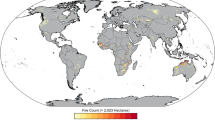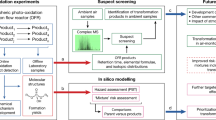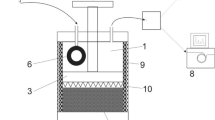Abstract
IN a recent communication on this subject1, O. C. de C. Ellis makes a number of statements which should not go unchallenged. First, it is stated that carbon tetrachloride will not extinguish petrol fires. For many years carbon tetrachloride has had worldwide use for the extinction of petrol fires, particularly those associated with internal combustion engines, and its reputation rests to a large extent on its success for this very purpose. Secondly, it does not decompose stoichiometrically to yield twice its vapour volume of chlorine ; the amount of chlorine evolved in a fire is, in most cases, negligible2.
This is a preview of subscription content, access via your institution
Access options
Subscribe to this journal
Receive 51 print issues and online access
$199.00 per year
only $3.90 per issue
Buy this article
- Purchase on Springer Link
- Instant access to full article PDF
Prices may be subject to local taxes which are calculated during checkout
Similar content being viewed by others
References
Ellis, O. C. de C., Nature, 161, 402 (1948).
Fieldner and Katz, J. Franklin Inst., 190, 543 (1920).
Garland, A., and Camps, F. E., Brit. J. Ind. Med., 2, 209 (1945).
Henderson and Haggard, "Noxious Gases and the Principles of Respiration Influencing their Action" (Reinhold Pub. Corp., New York, 1943).
Author information
Authors and Affiliations
Rights and permissions
About this article
Cite this article
NICHOLSON, A. Extinction of Petrol Fires by Methyl Iodide. Nature 162, 111–112 (1948). https://doi.org/10.1038/162111b0
Issue Date:
DOI: https://doi.org/10.1038/162111b0
Comments
By submitting a comment you agree to abide by our Terms and Community Guidelines. If you find something abusive or that does not comply with our terms or guidelines please flag it as inappropriate.



